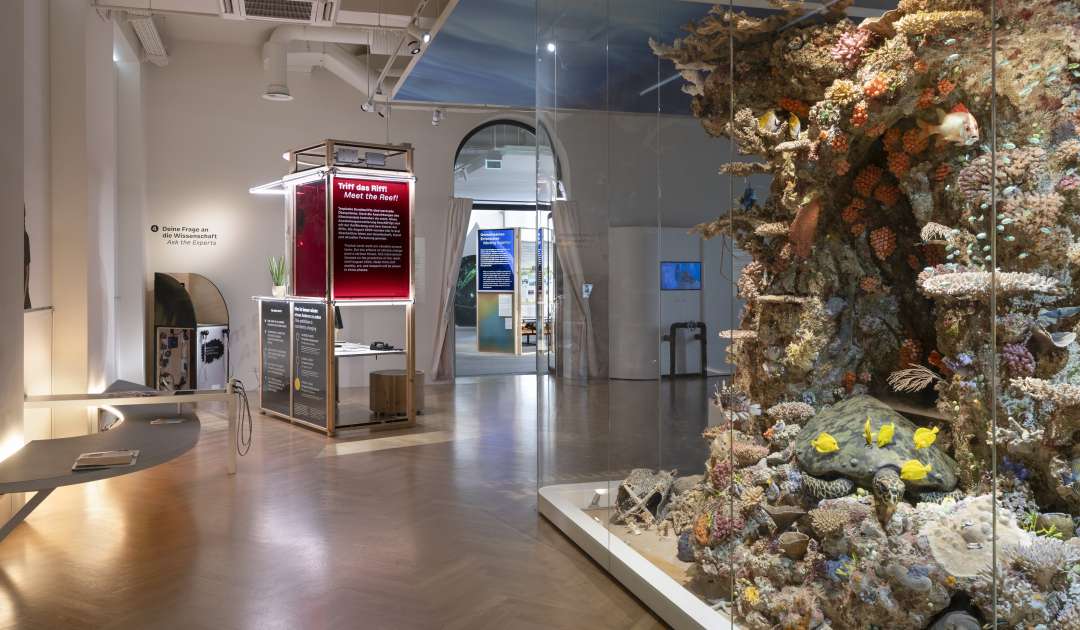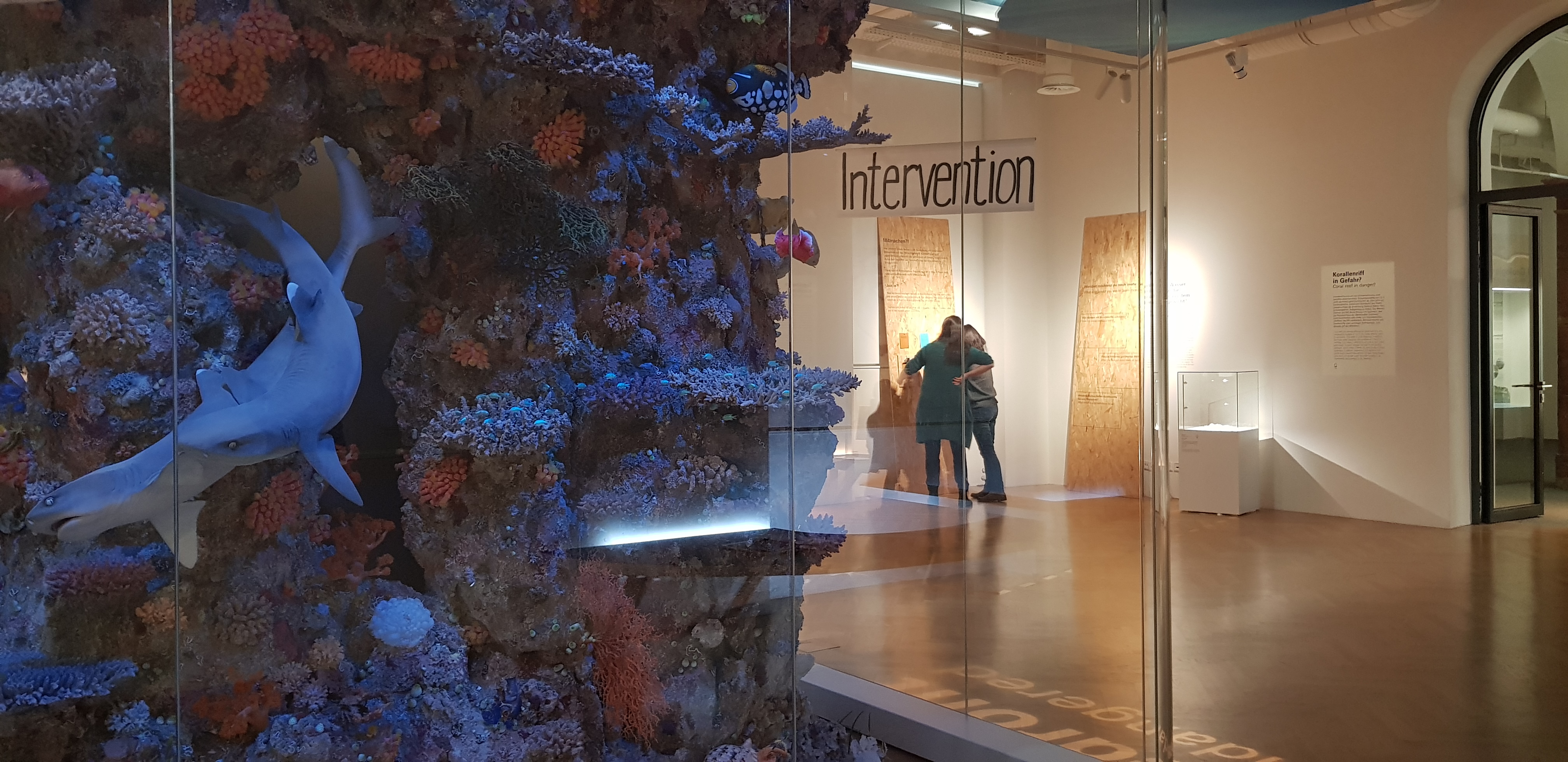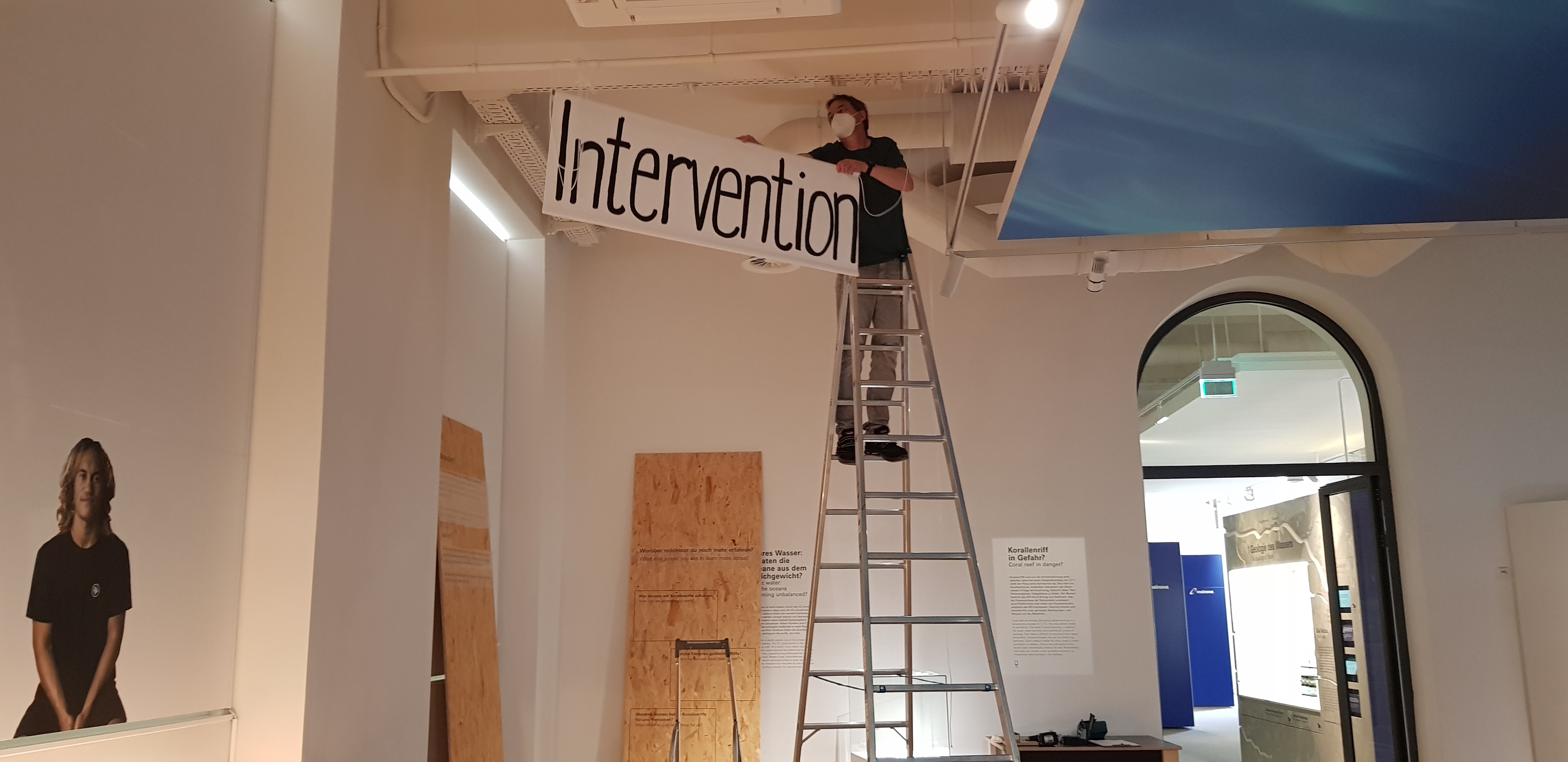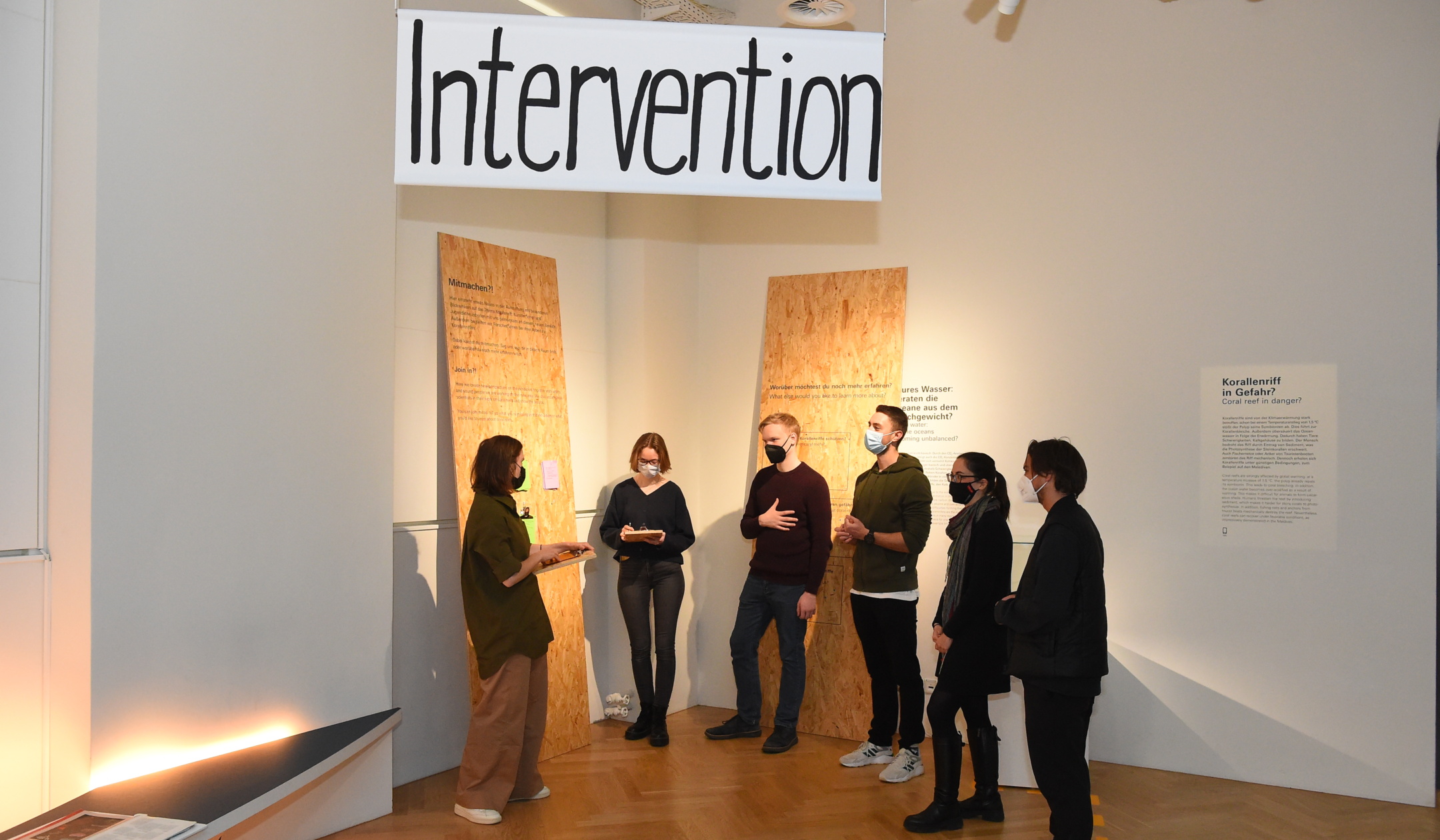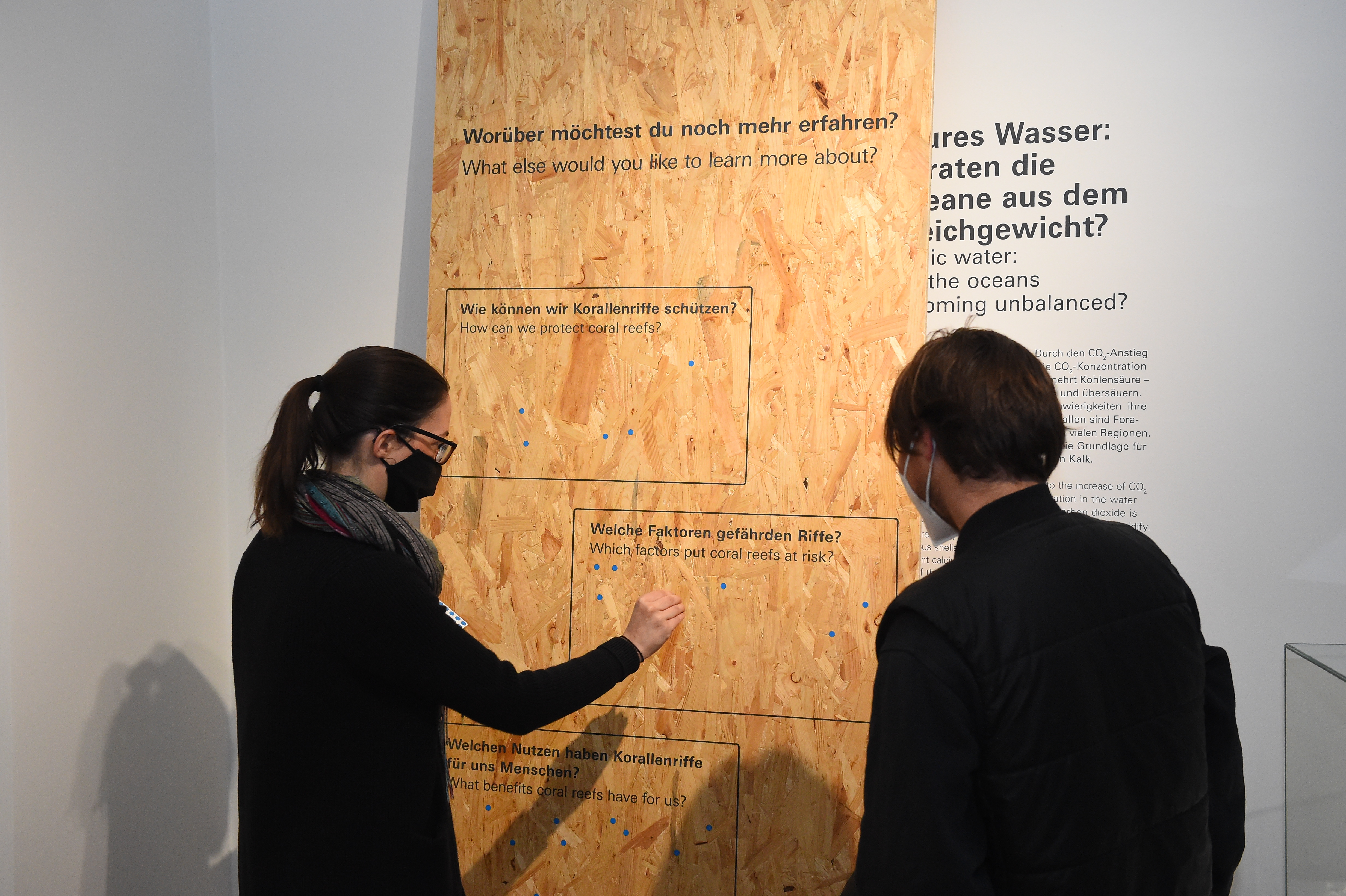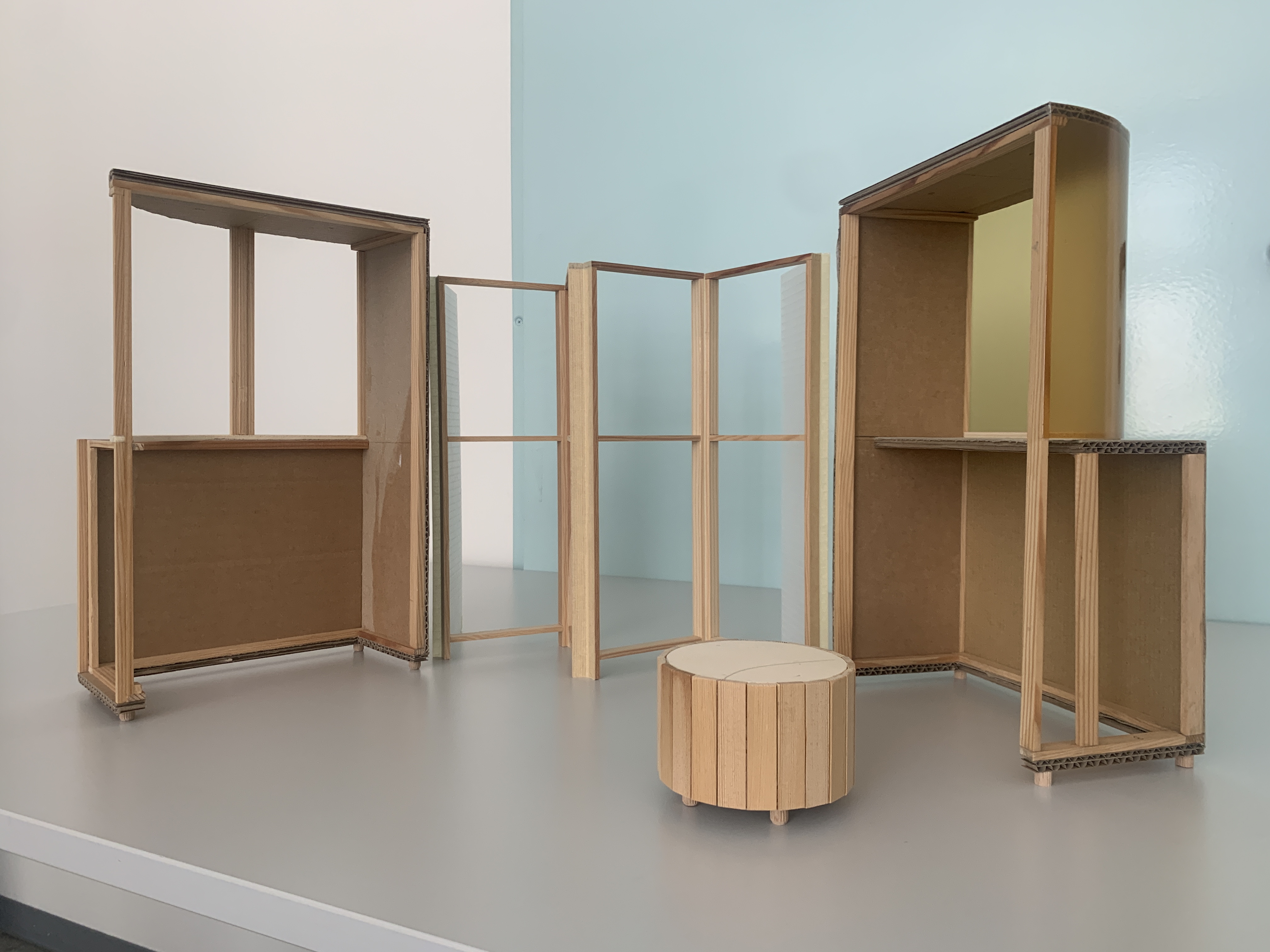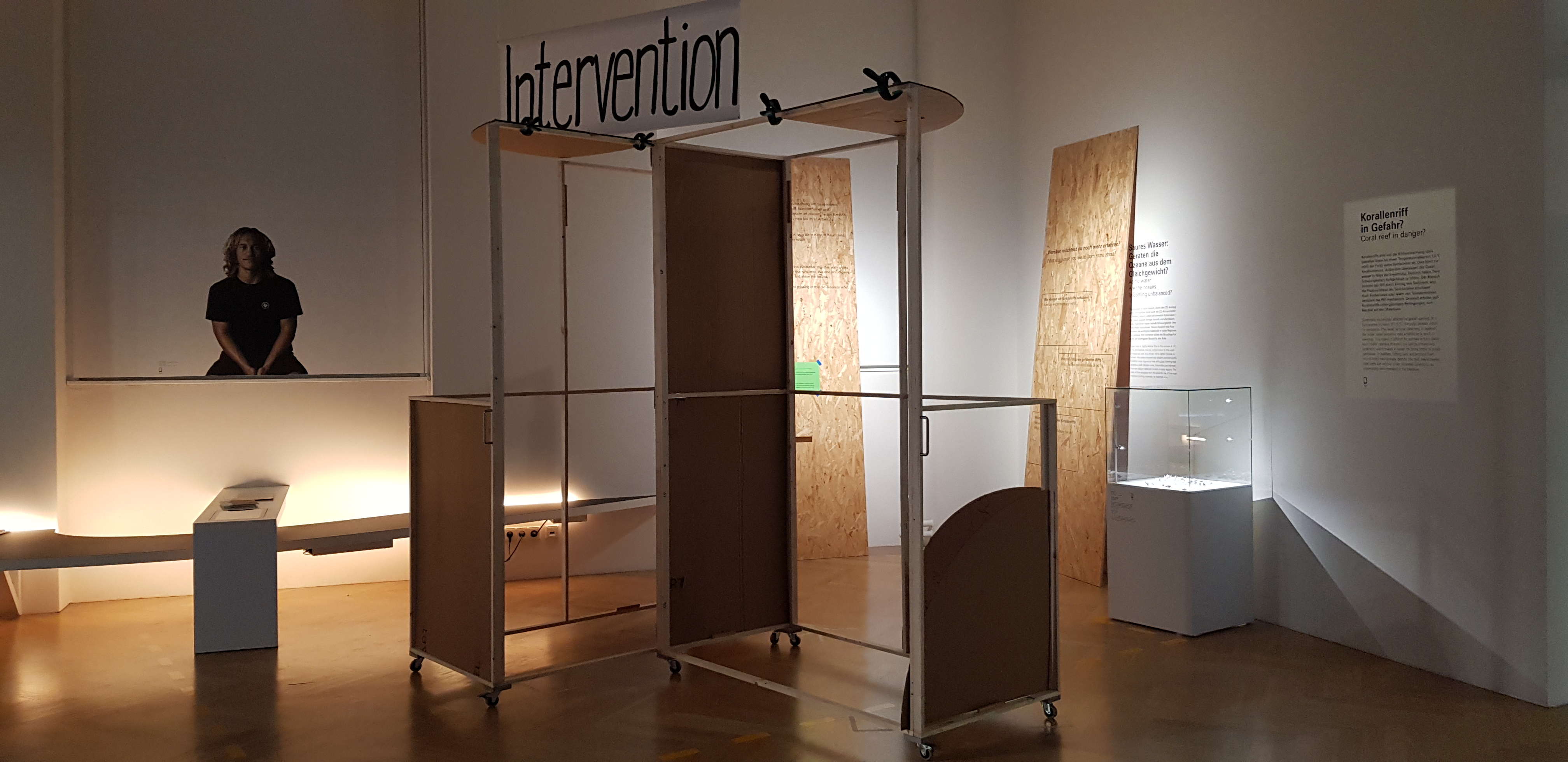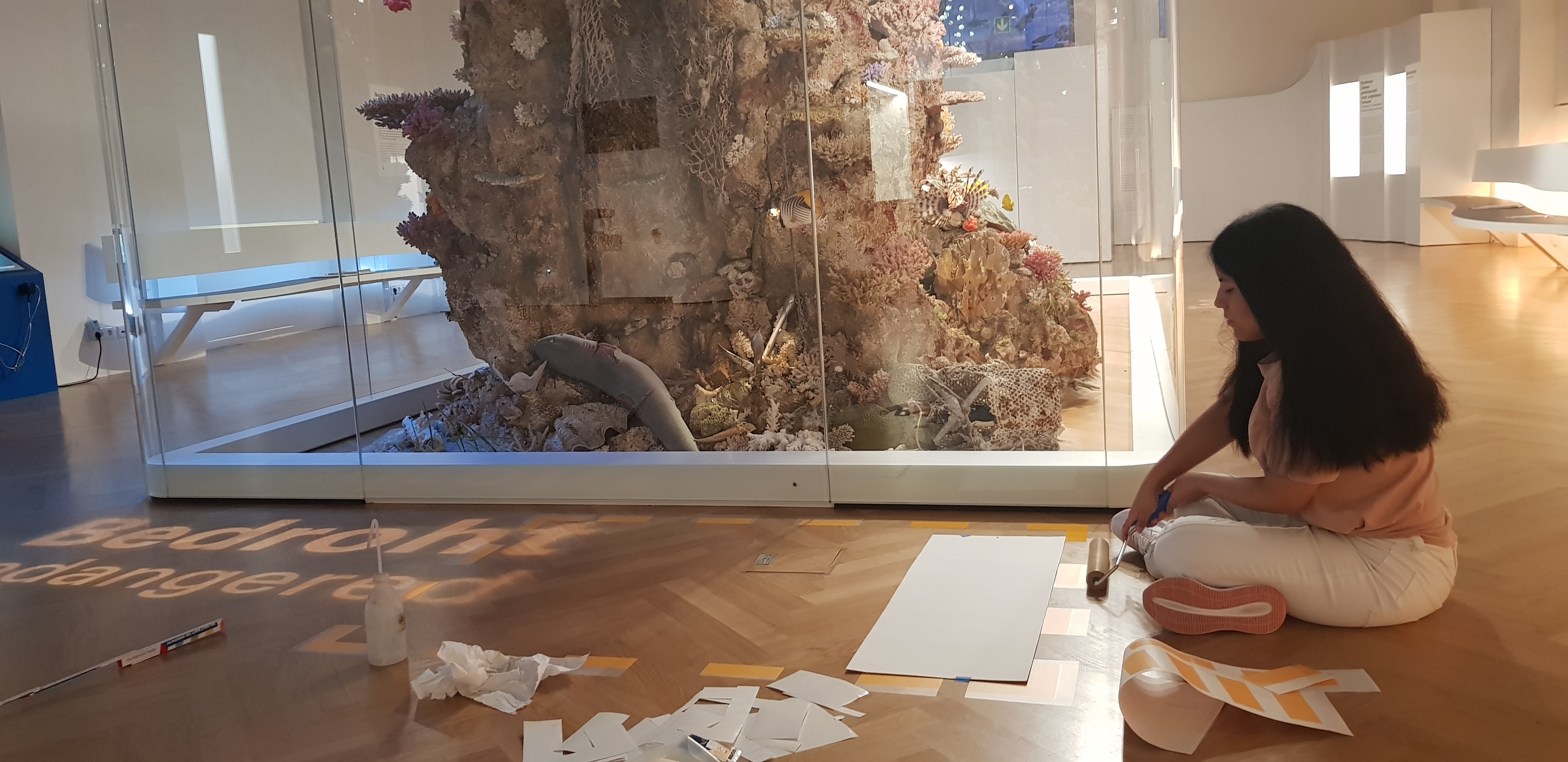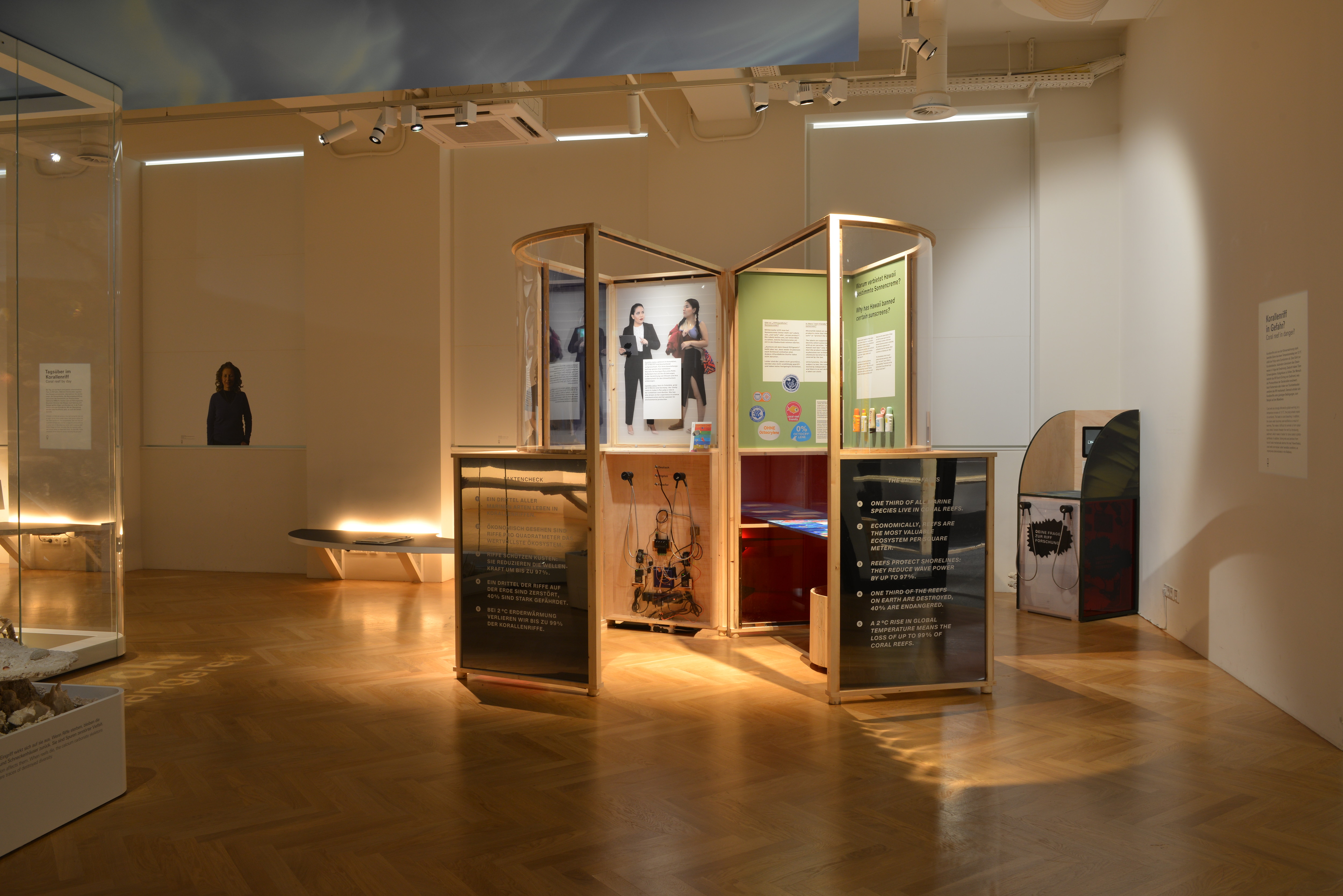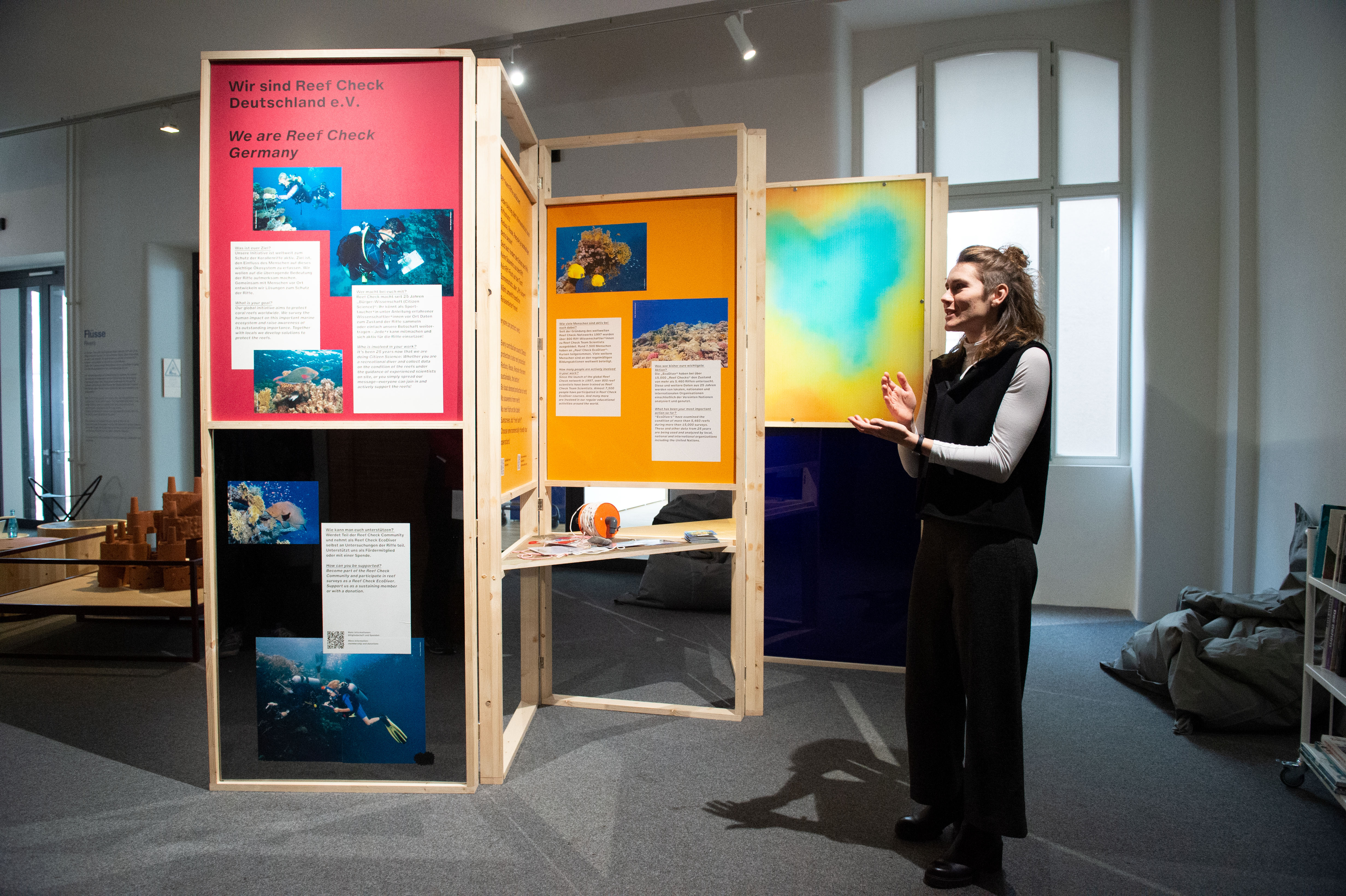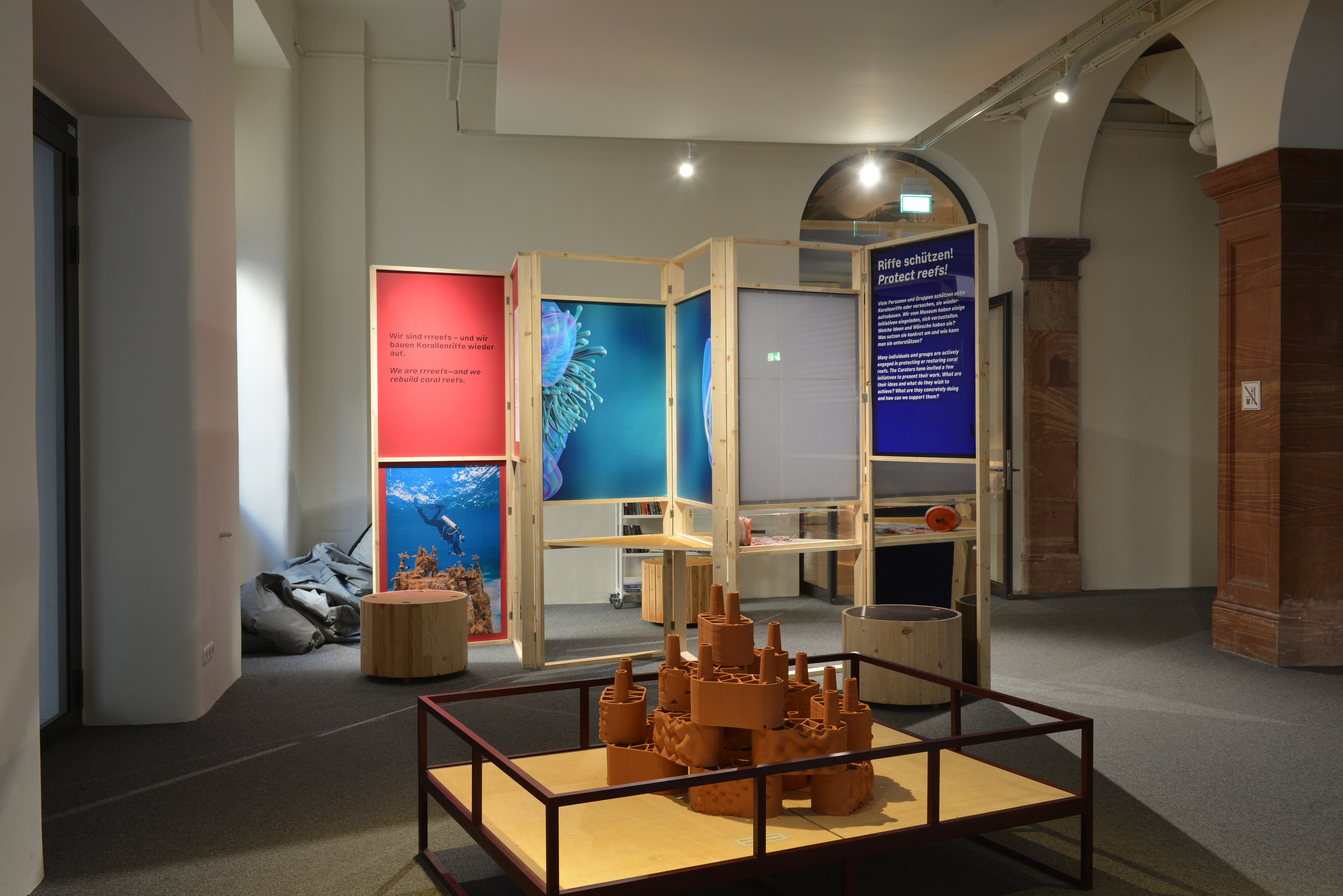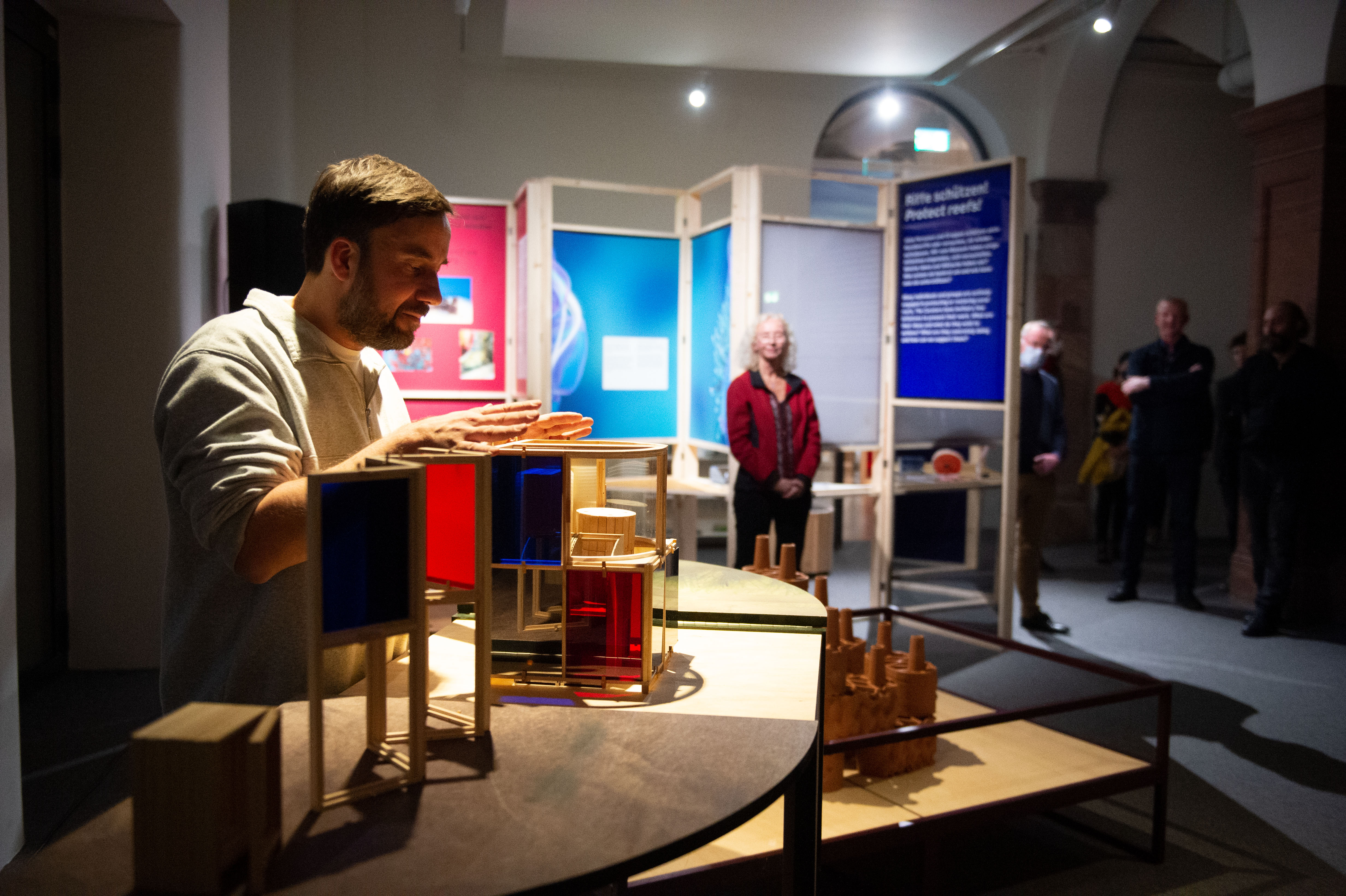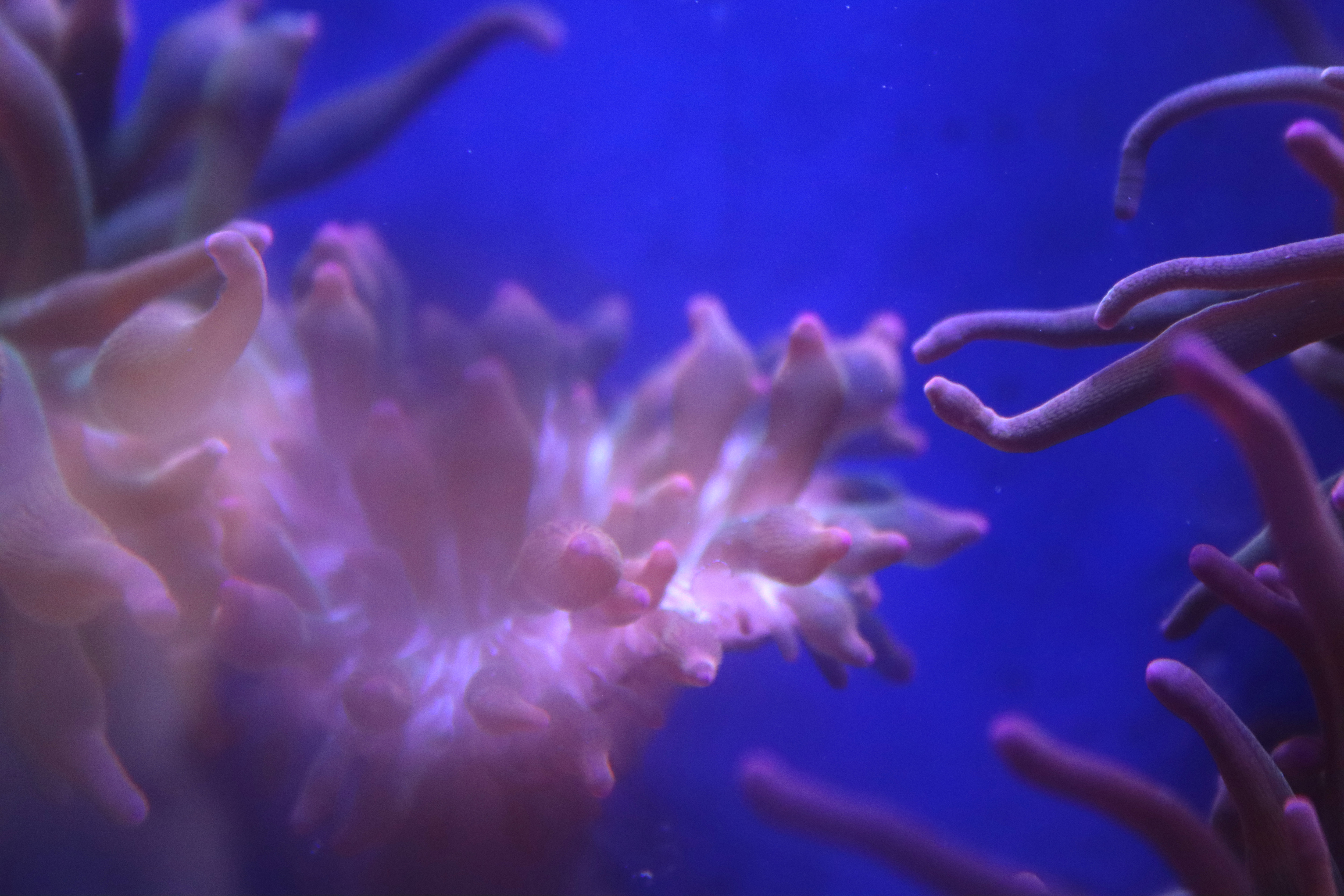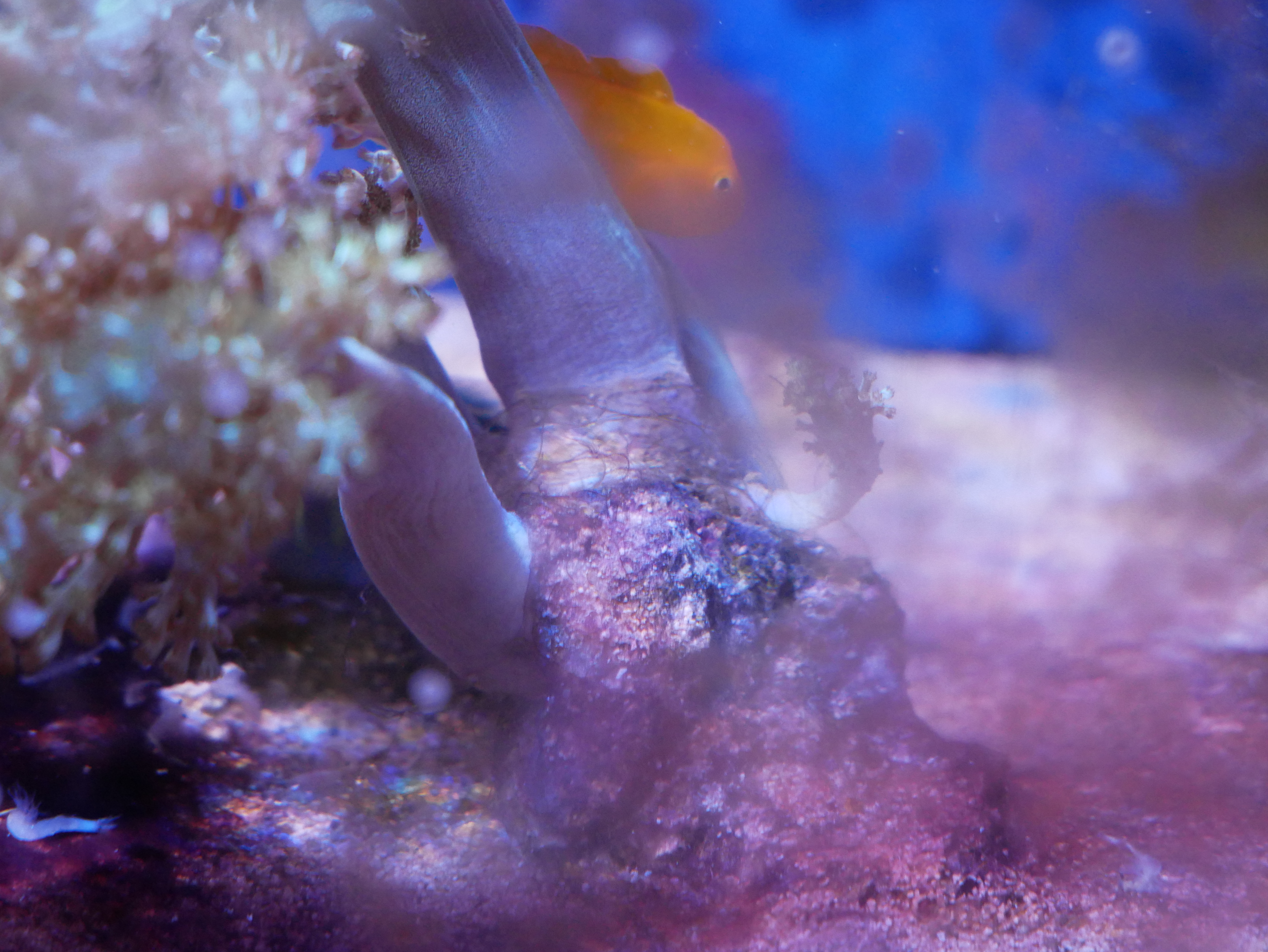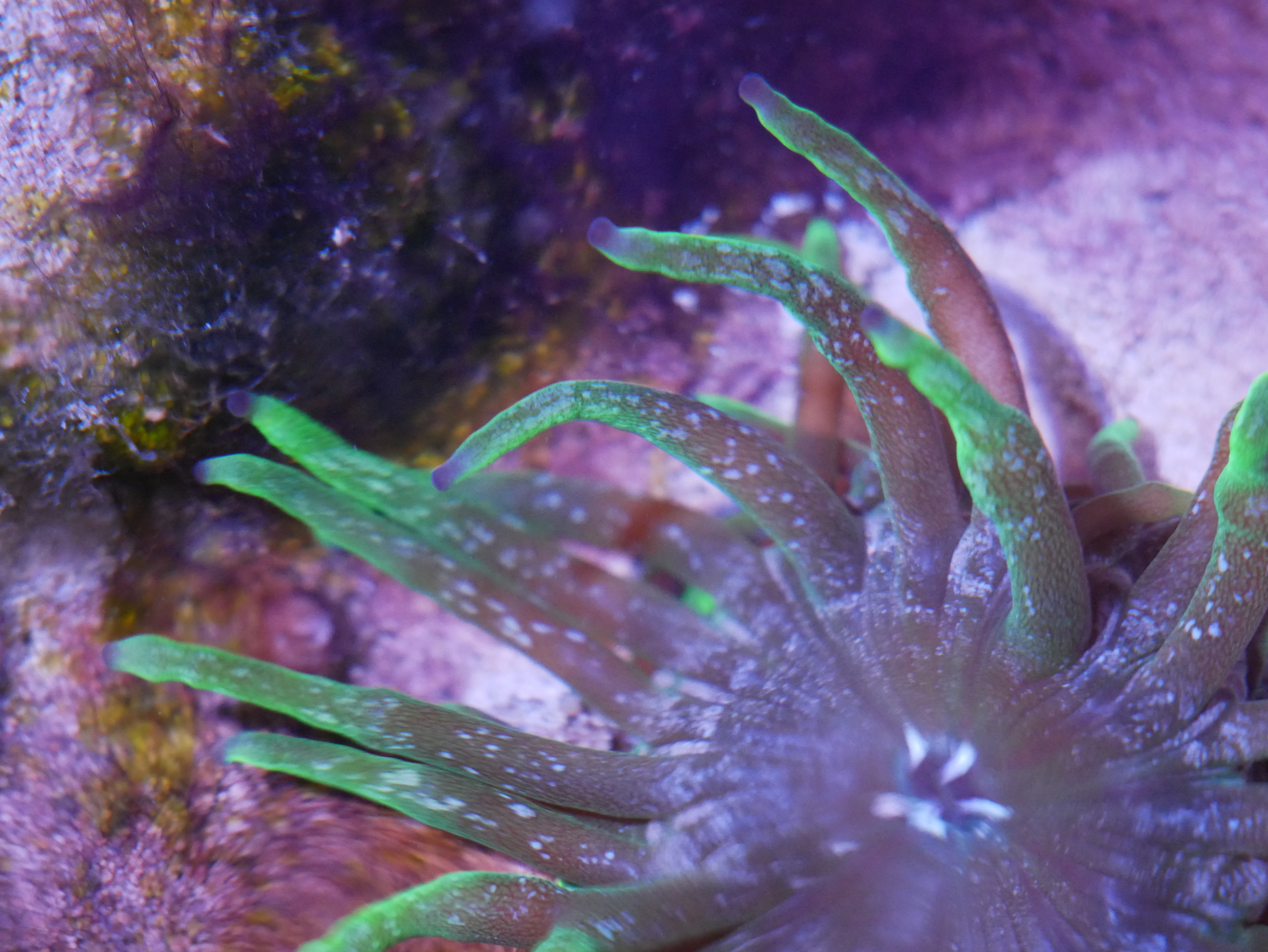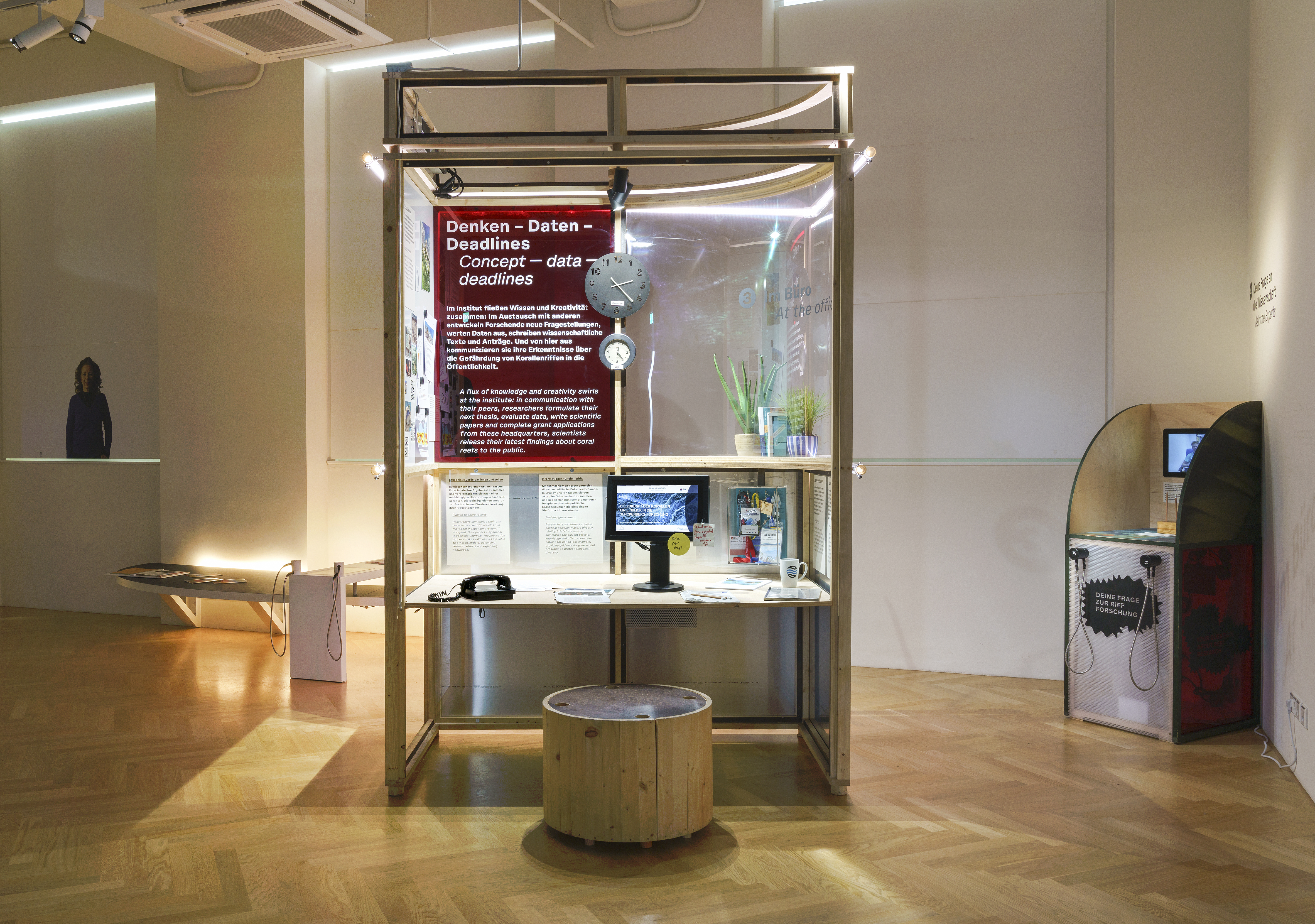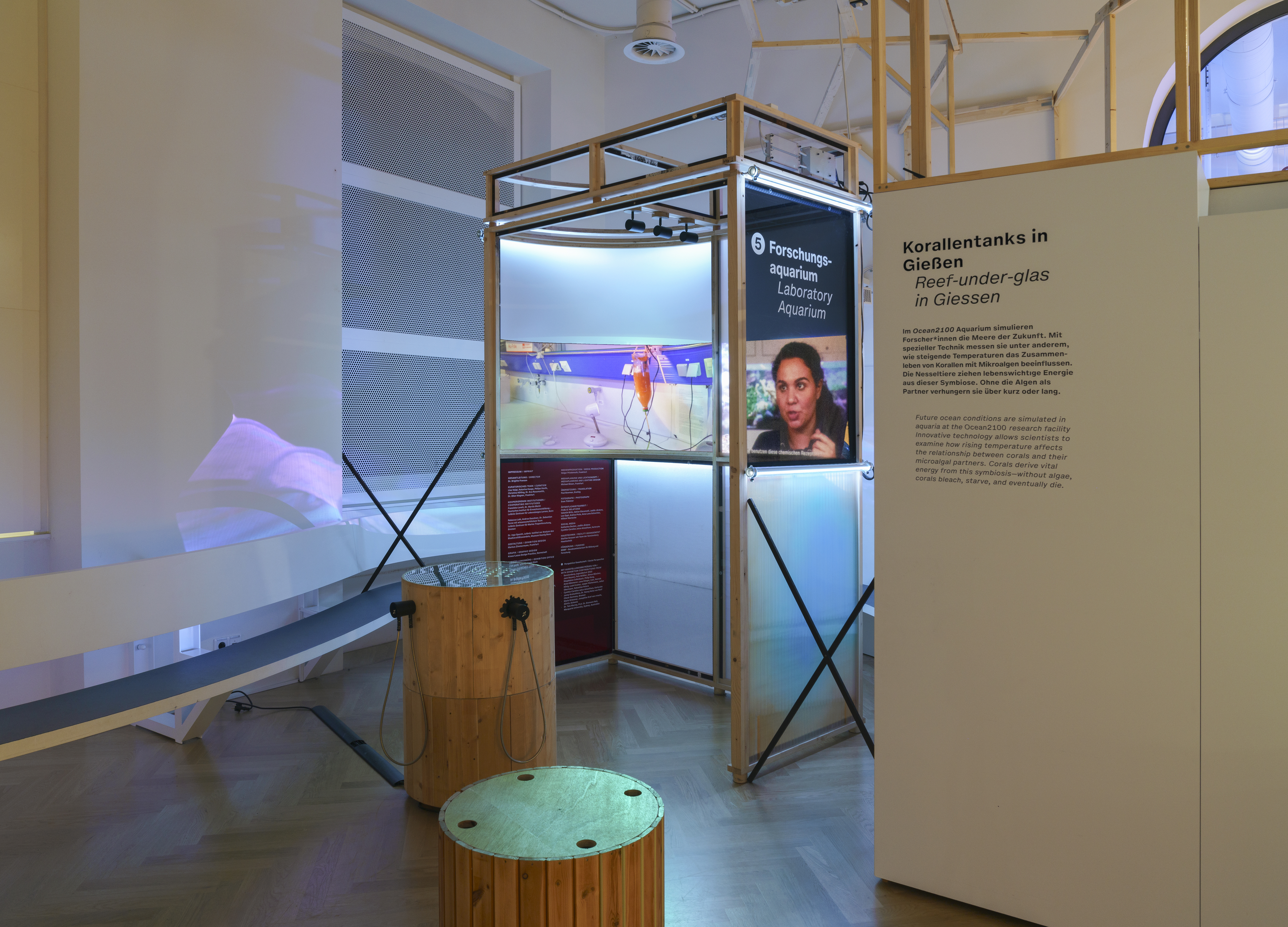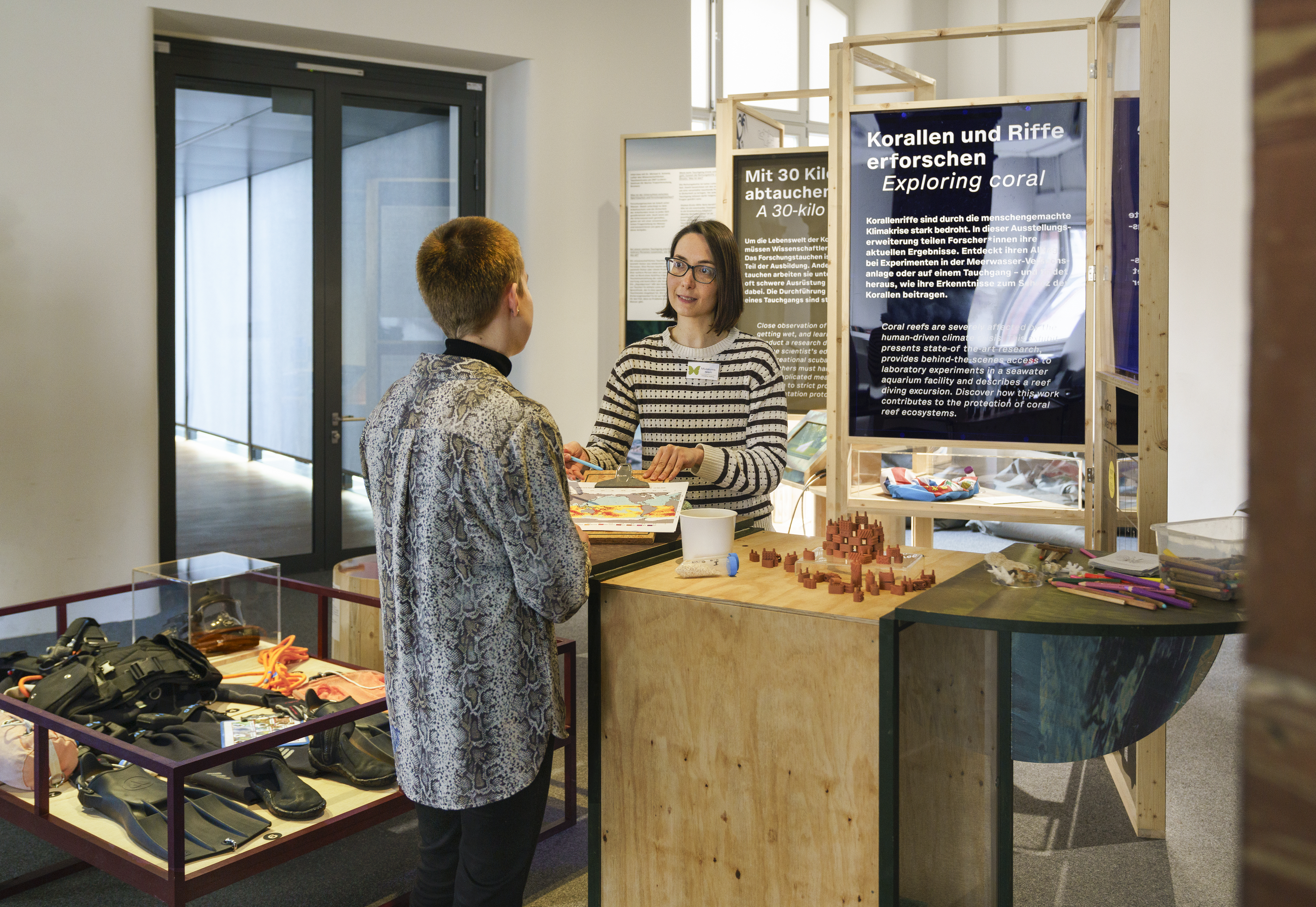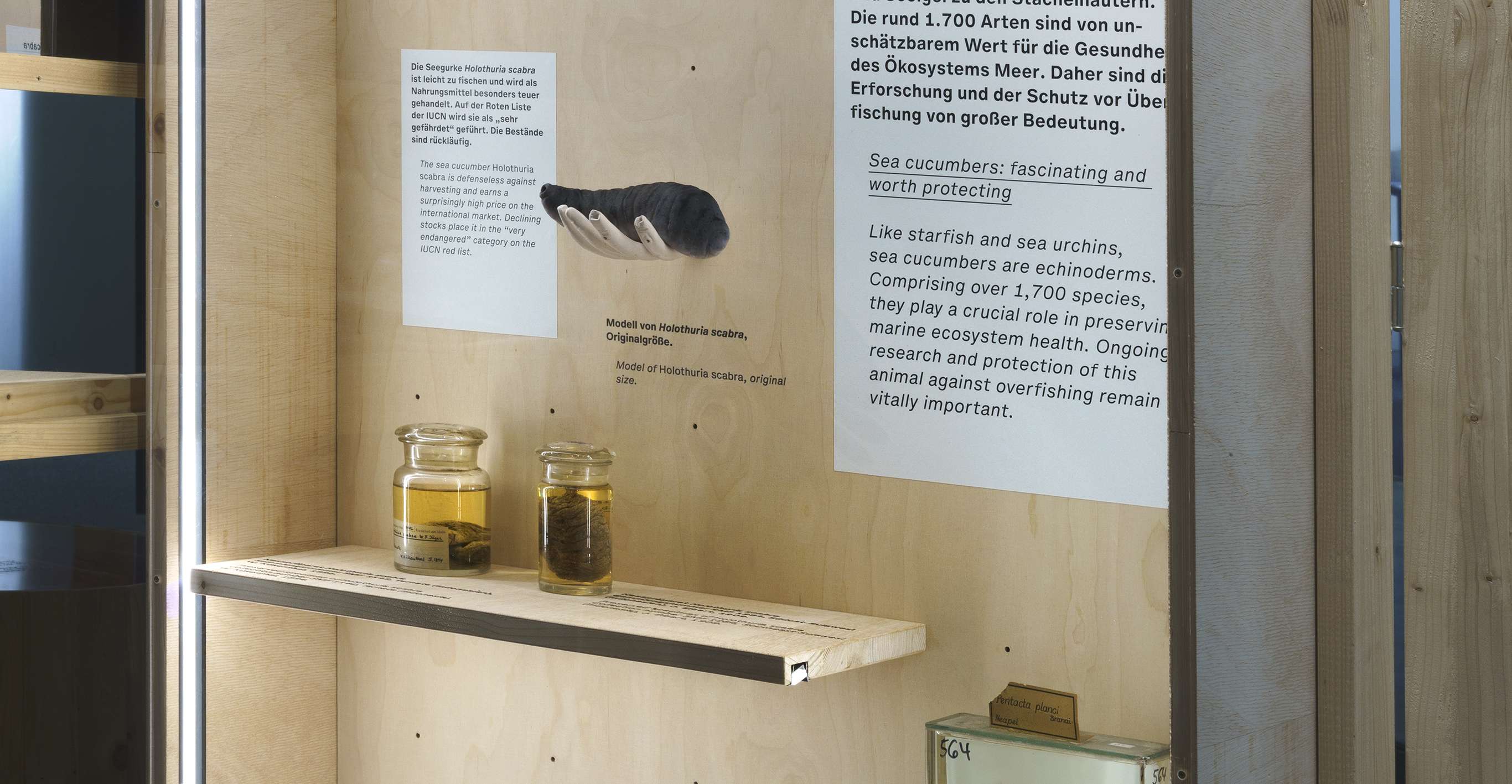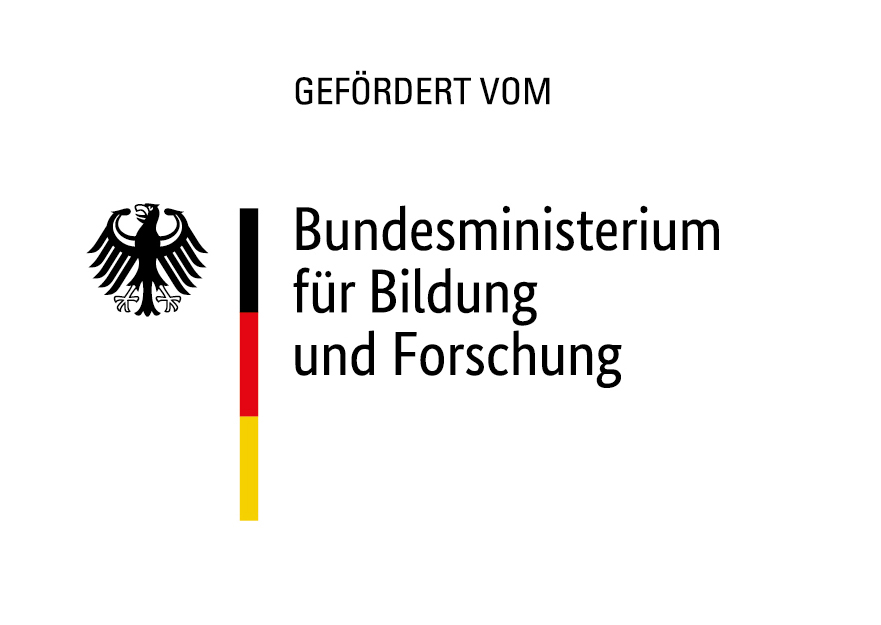Exhibition Expansion
Meet the Reef!
A new exhibition module in the Coral Reef
The rich species diversity and fascination of a tropical coral reef is on display in the permanent exhibition “Coral Reef” at the Senckenberg Natural History Museum in Frankfurt. Here, visitors can “immerse” themselves in the reef habitat and experience this ecosystem in various ways in the exhibition space. Newly added is the temporary exhibition expansion “Meet the Reef!”: different perspectives from society, art, and science explore the value of coral reefs, their protection, and the threats they face.
Discover different perspectives through co-curation
Working together with the Senckenberg Youth Council, artists, and scientists, “Meet the Reef!” develops richly faceted, new, and unknown perspectives on the ecosystem of the coral reef. Pivotal to this approach of co-creation is the “Transformer”, a display module by the artist Markus Zimmermann that enables the museum team to respond quickly and creatively to questions concerning reefs. In the coming months visitors will be able to explore for themselves what this transformable module looks like, how it changes and evolves; the exhibition project runs until July 2024 and is part of the “Temporary Permanence” research project run by the German Federal Ministry of Education and Research (BMBF).
Perspective Society (December 2, 2022 to May 21, 2023)
For the first exhibition perspective (society), the curator team has worked with the Senckenberg Youth Council, various national and international NGOs (non-government organizations), and other relevant actors on different specific issues. Besides the fact check about coral reefs, there is also a station where questions on the reef ecosystem can be asked. The questions are answered by researchers at the scientific project partner, the Leibniz Center for Marine Tropical Research (ZMT) and shown in the exhibition.
Curated by Lisa Voigt (Senckenberg) and Christina Höfling (Senckenberg)
With contributions by: rrreefs, Reef Check e.V. and KŌRERO O TE `ŌRAU; Senckenberg Jugendbeirat, Cynthia Julca (through the Leibniz Programm Next Generation)
Transformer creator: Markus Zimmermann
Graphic design: Studio Kraus Lazos
Perspective Fine Arts (June 2, 2023 to January 15, 2024)
For the second perspective in “Meet the Reef!” the artists Linda Weiß and Nina M.W. Queissner have been invited to develop an artistic installation combining sound and sculpture.
Their installation “Looking for Medusa” takes the visitors on a journey across past, present, and future mythologies. Its starting point is in antiquity: Based on Ovid’s narrative about the origin of coral, the installation explores possible relations between different ecosystems and mythologies, or understandings of how we humans locate ourselves holistically in the world and the cosmos. By imagining an experimental habitat for speculative coral creatures the artists are asking how corals might be able to exist in future times. The visitors are invited to explore the working process of artistic research and are encouraged to engage with their own stories and questions.
Curated by Lisa Voigt (Senckenberg) and Ellen Wagner
With artworks by Nina Queissner und Linda Weiß
With many thanks to MeWa Store, Darmstadt
Perspective Research (February 2, 2024 to July 12, 2024)
The final in the series, the science perspective, will be developed in close collaboration between Senckenberg curators and researchers from the cooperating partner, the Leibniz Center for Marine Tropical Research (ZMT). Positions from other scientific disciplines exploring coral reefs as an ecosystem or topic will also be included.
Curated by Lisa Voigt (Senckenberg), Christian Höfling (Senckenberg), Dr. Sebastian Ferse (ZMT)
